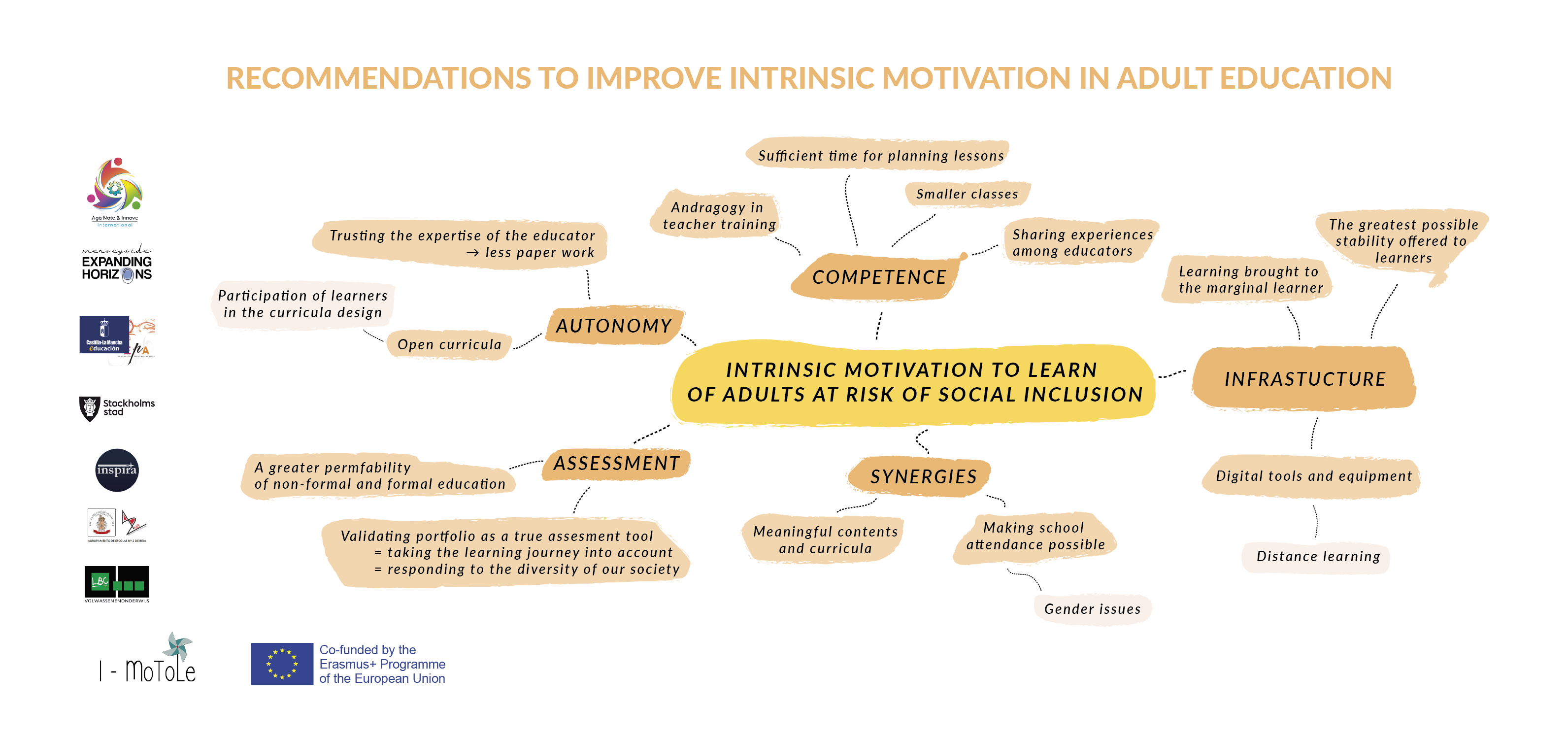
Since March of 2018 that the I-MoToLe project is running to responds the European needs, challenges and policy within Adult Education. In 2009, ET 2020 set four common EU objectives to address challenges in education and training systems by 2020, making lifelong learning and mobility a reality, improving the quality and efficiency of education and training, etc.
The overall aim of the project is to produce a more effective educational experience for adult learners through effective strategies focused on improving the intrinsic motivation of adults from marginal, vulnerable, disadvantaged groups or situations of social exclusion.
The project was submitted and is being executed by seven partner organisations (from Portugal, Spain, France, Belgium, UK, Macedonia and Sweden), all concerned with educational work with adults at risk of social inclusion.
After gathering the drop-out rates within the partner organisations, and analysing them in our first output ¨Needs Analysis & Analysis of Good Practice¨ (IO1), we developed a Training Package for Educators in Adult Education which helps them foster the intrinsic motivation in their learners in Intellectual Output 2 (IO2).
Our validation Portfolio (Intellectual Output 3) was concerned with using portfolio, not only as a means to enhance the learners’ intrinsic motivation, but also to validate their competences. The activities developed for IO3 have been extensively tested by adult learners during a week-long training activity (C2) at Beja, Portugal.
It is this trajectory, from IO1 to IO2 and IO3, which has brought us to the formulation of the present output « Recommendations to Policy Makers“ (Intellectual Output 4, IO4).
Although we are aware that the theme of our project, i.e. the intrinsic motivation of adult learners, is (already) on the agenda of some policy makers and institutions, we want to stress that the recommendations proposed are fuelled by our extensive experiences with adult learners as adult educators and adult educational institutions. They can thus be considered as guidelines from the bottom up.
Not all recommendations listed might be valid (any longer) for our national, regional, or local situation. Inevitably, some or many of these may indeed already be being implemented in different member states with differing levels of success. Nevertheless, the list reflects the diversity of the partner organisations and therefore includes all our recommendations. It is moreover inspired by the best practices we have found in the policy contexts of our partners.
We have based on our own experiences and the literature on intrinsic motivation, including all factors which impact the intrinsic motivation to learn, directly and indirectly. One of the theoretical frameworks we have used to understand intrinsic motivation in our second Intellectual Output (IO2), is Self-Determination Theory (SDT). Research found (and finds) how ‘autonomy’, ‘belongingness’, and ‘competence’ are key to the quality of motivation of humans.
Motivated learners need motivated educators! The recommendations take both actors into consideration.
We ask your collaboration by reading the mentioned IO4 Ten recommendations, sharing it with Policy Makers close to you and filling in the questionnaires for a bigger improvement of our project outcomes.

